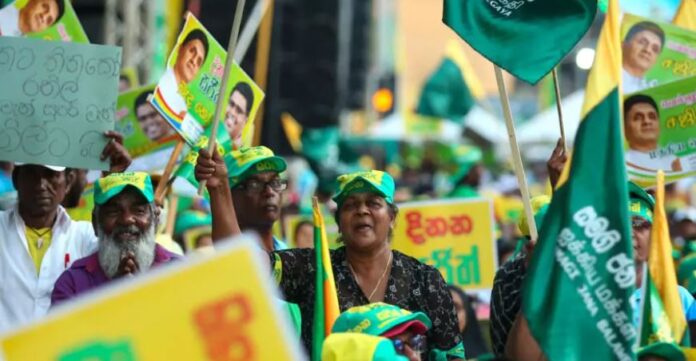Sri Lanka is set to hold its first national election since the 2022 economic collapse, with President Ranil Wickremesinghe seeking a renewed mandate to continue the austerity measures he credits for stabilizing the nation. In his final campaign rally in Colombo, Wickremesinghe, 75, urged voters to support his efforts to rebuild the economy.
“We must continue with reforms to end bankruptcy,” he said. “We must build a new economy.” Wickremesinghe also warned voters of the potential for unrest, referencing the 2022 crisis when civil protests erupted, leading to the ousting of his predecessor.
Also Read: US Keeps Missile System in Philippines as Tensions with China Escalate
The president’s austerity measures, part of a $2.9 billion IMF bailout, have been met with criticism as millions continue to struggle. Tax hikes and spending cuts have left many citizens facing financial hardship, and the country’s foreign debt of $46 billion remains unresolved since the 2022 default.
Election Seen as a Referendum on Economic Management
According to the International Crisis Group, the election will act as a referendum on Wickremesinghe’s handling of the crisis and his government’s modest recovery efforts. However, public discontent remains high, with many perceiving the austerity measures as unfair.
As the campaign concluded after a 56-day period, Sri Lanka entered a two-day cooling-off period before the vote on Saturday. An estimated 17.1 million people are eligible to vote, with 63,000 police officers deployed to maintain order. Election results are expected by Sunday.
Rising Opposition and Key Challengers
Wickremesinghe faces strong opposition, including from Anura Kumara Dissanayaka, leader of the Marxist Janatha Vimukthi Peramuna (JVP) party. Once marginalized, the party has gained momentum as Dissanayaka, 55, promises to overhaul Sri Lanka’s “corrupt” political system. His rallies, marked by red flags, have drawn significant public support, particularly from those angry over government corruption and economic mismanagement.
Analysts suggest that Dissanayaka could benefit from widespread disillusionment. “There is a significant number of voters trying to send a strong message,” said Murtaza Jafferjee of the think tank Advocata.
Another key contender is Sajith Premadasa, leader of the Samagi Jana Balawegaya party, who has pledged to reform the IMF-supported tax code. A former deputy to Wickremesinghe, Premadasa has distanced himself from his former ally, promising transparency and a fight against corruption.
Economic Recovery at Stake
While Sri Lanka’s poverty rate has doubled since 2021, with 2.5 million more people living below the poverty line, the IMF has pointed to signs of recovery. Inflation has dropped from 70 percent at the height of the crisis to below five percent, though experts caution that the country still faces significant challenges.
“A lot of progress has been made, but the country is not out of the woods yet,” said IMF spokesperson Julie Kozack.



